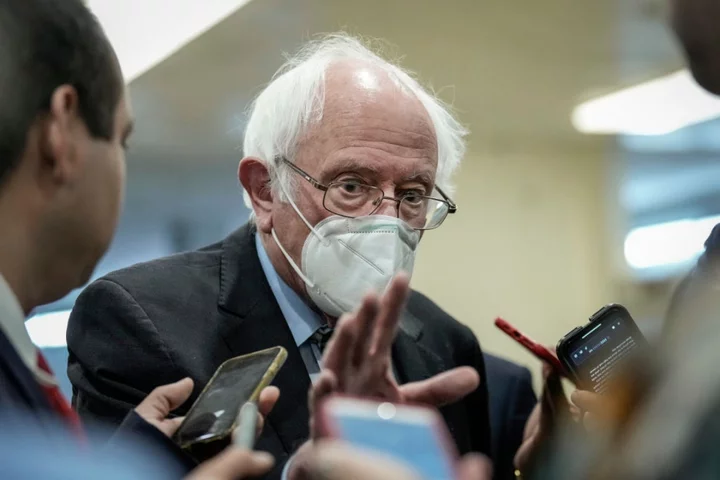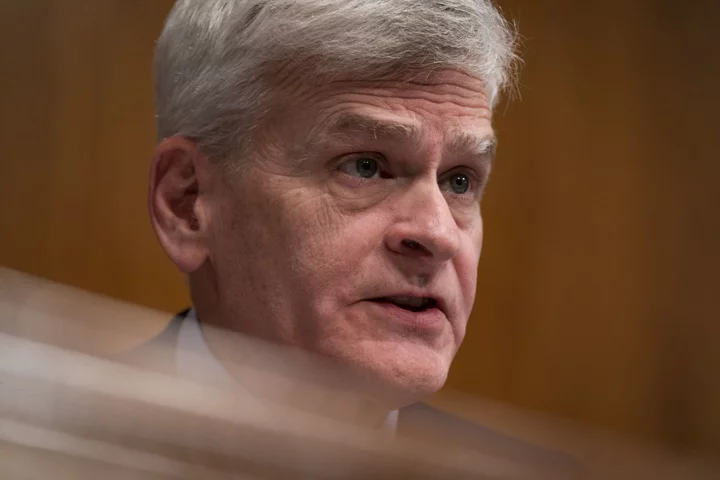Progressives are beginning a new offensive on Capitol Hill: Taking on America’s staggering $88bn in medical debt.
Headed up by the Bernie Sanders spinoff group Our Revolution, advocates around the country are gathering horror stories of instances where necessary procedures were blocked by insurance companies or, perhaps worse, approved with stipulations such as “out of network” classifications that can quickly (and often do) lead to lifesaving treatment becoming a financial death sentence.
The group hosted a town hall led by executive director Joseph Geevhargese on Monday, where a number of Americans shared their own personal versions of ruin at the hands of medical debt collectors and hospital bills. Between 10 per cent and half of adult Americans are thought to carry medical debt in some form, with estimates widely varrying thanks to the complexities of tracking paid-off debts.
Elizabeth McLaughlin, one woman who shared her account with participants of the town hall event on Monday, spoke about how treatment she received in 2017 has led to her taking on tens of thousands of dollars in credit card debt as she placed utility bills and other basic needs like groceries on lines of credit rather than face medical debt collectors.
“I pass it from one [card] to another, and in the meantime I’m just grateful that I’m employed, and insured, and I can keep making the payments,” she explained.
Another woman, Kristin Noreen, explained that she even filed for bankruptcy, only for her debt to immediately begin climbing into the thousands again thanks to tax obligations and other costs. Her treatment bills rose past $1m dollars after she was struck by a car on her bicycle and suffered grievous injuries, including the amputation of her hand, and now she explains that she has little chance of ever climbing out of her personal debt trap — even after her insurance paid for all but $60,000 of the treatment cost, and $50,000 of the remaining debt was handled by a charitable donation. The remaining $10,000 was still more than enough, coupled with the cost of years of therapy she says is “barely” covered by her Affordable Care Act plan, to leave her in financial desolation.
“I’m back up to $10,000 on credit cards and as of last month, I have another $3,000 in debt to the IRS for prioritising my care over my estimated taxes. I’ve been denied disability and I work part-time from home as much as I’m able to,” she explained, while noting that if her pay increases from her part-time work, she is legally required to pay it towards Affordable Care Act subsidies rather than her own debt.
Mr Sanders, along with a colleague in the House, Ro Khanna, reportedly plan to introduce legislation in the coming weeks aimed at addressing the issue — along with a nationwide campaign aimed at pressuring vulnerable lawmakers to get on board. Among the legislation’s priorities will be halting “predatory” debt collection practices and going after price gouging in medical billing.
And while the demands in their upcoming legislation are small in comparison to Mr Sanders’s long-held desire to overhaul America’s for-profit healthcare system into a single-payer system aimed at affordability and access, the efforts by progressives to highlight the tragic cases of Americans consumed by medical debt likely aid in the left’s work to popularise the idea of major reforms and changes to the structure of America’s health system.
Mr Sanders called for the elimination of all medical debt in the spring of 2022 after three leading credit agencies announced that they would no longer track paid-off medical debts when calculating credit ratings for Americans.
“‘Medical debt’ and ‘Medical bankruptcy’ are two phrases that should not exist in the United States of America,” the senator said at the time. “Removing 70 percent of past-due medical debt from credit reports is a step in the right direction, and much more needs to be done. We must cancel all medical debt.”
Read MoreDeal or default? Biden, GOP must decide what's on the table
Black voters backing Biden, but not with 2020 enthusiasm
House Republicans pressure Biden as they vote to raise debt ceiling in exchange for spending cuts









